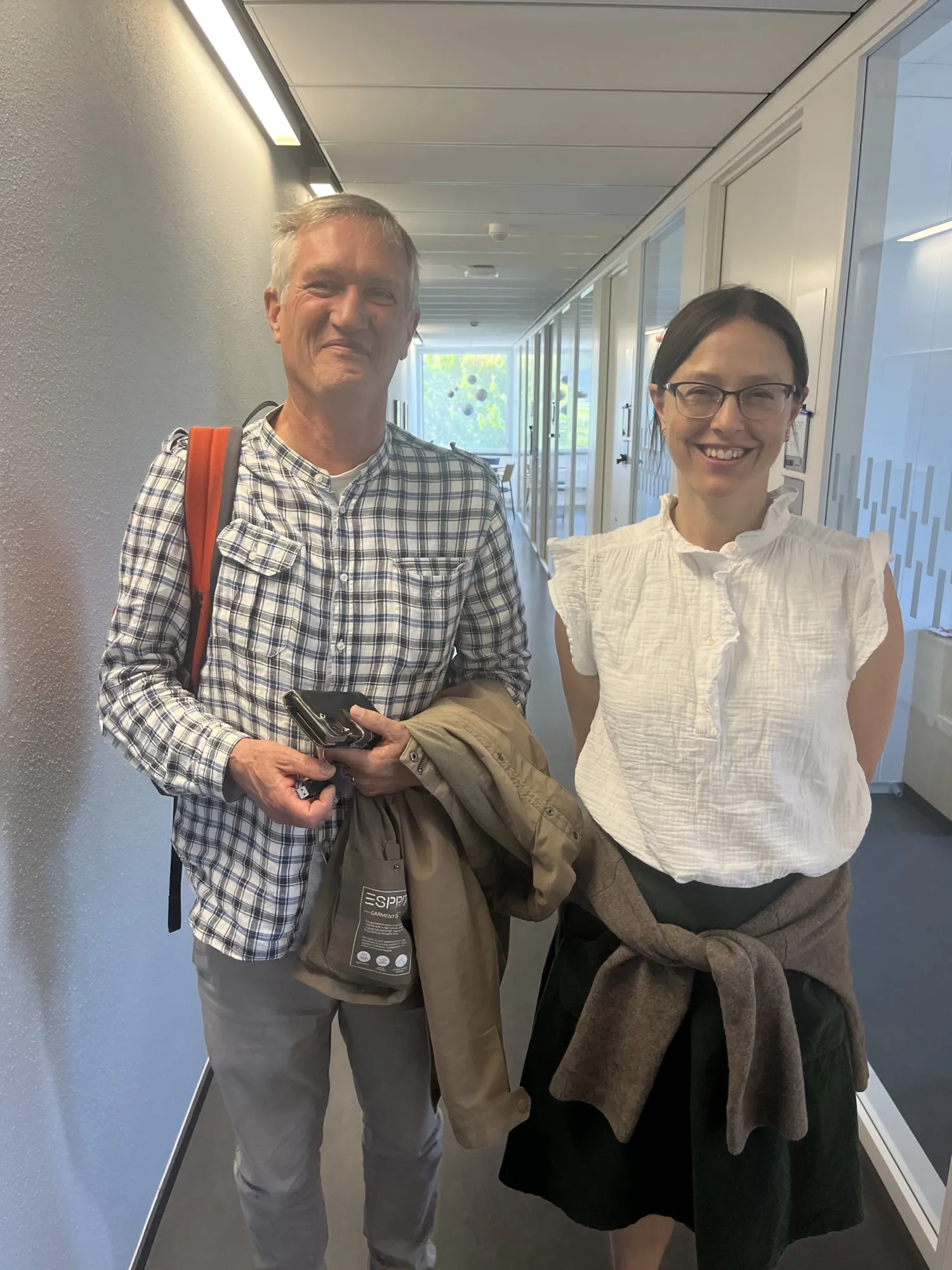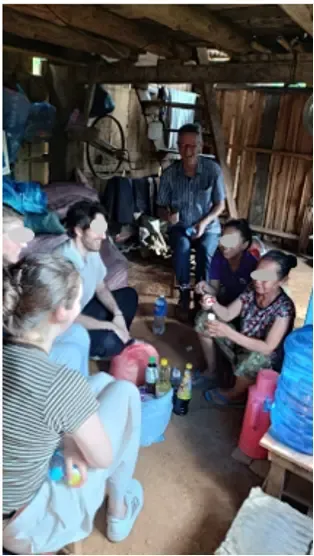KI students and Anders Tegnell gain new perspective on global health in Lao PDR
KI’s Global Health course combines classroom learning with international fieldwork in countries like Laos, offering students from various programs unique insights into global health systems and challenges. Anders Tegnell, physician and state epidemiologist during the COVID-19 pandemic, recently joined the course as a guest teacher. “It gives new perspectives, and you learn new things”, says Tegnell after travelling to Lao PDR with KI students as part of the Global Health course.
Student Elective Courses give students at KI in the medical programs an opportunity to broaden their field of knowledge. At the Department of Global Public Health (GPH), Helena Nordenstedt has been responsible for the elective course “Global Health” for more than 10 years. It is one of KI's oldest elective courses, started in the 90s by the late KI professor of international health, Hans Rosling.
A 5-week course with 2 weeks of international exchange
The course is 5 weeks, and 2 weeks are spent in a low- or lower-middle-income country, currently Uganda, Laos or Tanzania. The course is interprofessional, i.e. open for students from several different programs including Nursing, Psychology, Speech and language therapy, Occupational therapy, Audiometry, Radiography and the Medical program.
The combination of theory and a 2-week visit to different levels of the health system, from household to university hospital, in a setting with very different conditions compared to Stockholm, can be eye-opening to many students.
Students travel in small groups of 20 with a teacher from Sweden. This year, Anders Tegnell, physician, state epidemiologist during the COVID-19 pandemic, senior expert at the Public Health Authority, travelled with students to Lao PDR.

Anders Tegnell on getting involved in the Global Health course
Helle Mölsted Alvesson, Departmental Director of Education at GPH, recently interviewed Anders Tegnell about his involvement in the Global Health course for KI students:
What got you interested in joining the Global Health course for KI-students in Lao PDR?
I believe that this is a very important course, since we need new young people working with global health in Sweden. So, I am very happy to contribute to that in any way I can. It is also very interesting to follow new people coming into the field and how they react and what they see. It gives new perspectives, and you learn new things.
Why Lao PDR?
I worked there in the early 90s, and this was an opportunity to come back and see how it has developed. It is also a country that is changing very fast and has big challenges in the area of health.
As a teacher joining the students, how could you facilitate student learning?
I could try to put things into context and try to fit the individual stories we encountered into the broader perspective of health and universal health coverage. I could also act as a go-between them and our Lao colleagues, who really did a fantastic job in creating all these experiences for the students. I am curious to understand how students from a high-income setting learn “how to see” a new health care setting.

What did you notice that the students learned by visiting the health centers and communities? What questions did they ask? What surprised you?
First of all, it is of course very difficult to get a good understanding of a completely different health system in such a short time, especially since their experiences of the Swedish system are limited. Visiting hospitals and health centers for a few hours and listening to statistics is important, but talking to the individuals themselves gave a clearer picture of what it is like to be very poor in a country like Laos with a very complicated and fragmented health system. They asked a lot of questions about the economics of accessing health care and about the different ways people get health care. I think they got a good picture of how complicated it is and how the quality of care can vary enormously.
I am still surprised about how some parts of the health system have developed a lot, with new buildings and equipment, but that so many people still do not really seem to have access to good quality health care.
Within the new 6-year medical program at KI, the students are expected to learn about “global and equitable healthcare and health” as one of five areas of expertise. From your perspective as a public health expert, how will this knowledge benefit the students in their careers as health care providers or future colleagues in global public health?
That is a very big question and probably not for me to answer, but I believe that many of us working in health often focus too much on the individual, and having a population perspective now and then would benefit Swedish health care in many ways.
